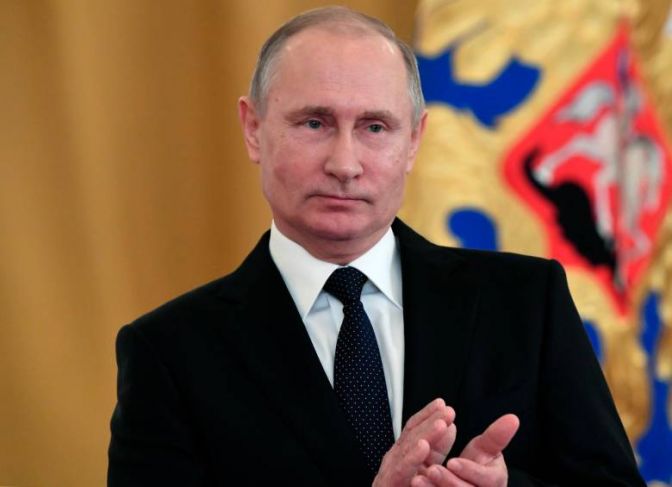In many recent discussions I have been asked why the Latin American left continues to back the right-wing Russian dictator Vladimir Putin, who is neither socialist nor progressive.
Indeed, leftist governments in Latin America have on the whole resisted condemning Russia for its unprovoked invasion of Ukraine, preferring to either abstain from voting in the name of some perceived “neutrality” or, in favor of Russia.
There are several understandable reasons for leftist governments to behave this way, but far fewer for Latin American artists and intellectuals to do so.
On October 7th, Vladimir Putin celebrated his 70th birthday. On that occasion, former Bolivian President and leftwing icon Evo Morales wrote “… the dignified, free, and antiimperialist peoples accompany your battle against the armed interventionism of the United States and NATO. The world will find peace when the U.S. stops attacking life”.
So, Morales, a leader of the Latin American political left, supports Russia’s unprovoked invasion of Ukraine by blaming the United States for “aggression” ignoring the fact that Russia has killed tens of thousands of Ukrainians, destroyed much of the country’s infrastructure, and created over six million refugees scattered all over the world.
Why?
The answer is obvious after a little research.
The Latin American left has always perceived the United States as being the region’s enemy, and often for good reason.
We must remember that Cuba has been a client state of Russia and the former USSR since 1960.
Nicaragua’s Daniel Ortega was and continues to be a loyal client of Russia’s. He remembers that the U.S. supported the Contras in the nineteen-eighties and that the USSR (now Russia) supported his administration.
Venezuela quickly became a client state and ideological partner of Cuba’s shortly after Hugo Chavez was elected president in 1999. He quickly turned to Russia after Putin took power there that same year and the United States began to rightfully accuse Chavez of being anti-democratic and a communist.
Finally, Evo Morales turned to Russia after he took office in 2006.
Today, Venezuela, Nicaragua, and Bolivia owe the Russians plenty of money for arms and other support they have received as Putin tries to penetrate what the U.S. appears to claim is its sphere of influence.
Bolivia must pay Russia some $84 million this year, $105 million next year, and $380 million in 2024 for Russia’s construction of the Center for Nuclear Medicine and the Center for Nuclear Energy Research in El Alto.
According to The Economist Intelligence Unit, Bolivia has provided Russia with access to its rare earth mineral deposits in exchange for COVID vaccines.
Bloomberg News reports that Venezuela’s Maduro said shortly before Russia’s invasion of Ukraine that “we have ratified the path pf powerful military cooperation between Russia and Venezuela for the defense of peace, sovereignty, and territorial integrity”.
Meanwhile, Dr. Ellis Evans of the Center for Strategic and International Studies, Russia has provided a significant volume of military assistance to Nicaragua relative to its limited size and security needs.
Venezuela, Cuba, Nicaragua and Bolivia are also subject to varying degrees of economic sanctions. Thus, it is logical for them to turn to Russia under the theory that the enemy of my enemy is my friend. It would be equally illogical for them to bite the Russian hands that feed them, especially when Russian aid and support comes with none of the human rights and democracy demands the West makes.
Of course, leftist intellectuals and cultural personalities support anyone or anything that the United States opposes, even if it means supporting a fascist dictatorship that is neither socialist nor progressive.
A good portion of the Latin American left remains rooted in the 1960’s even as progressive leftists like Chile’s President Gabriel Boric try to drag it into the 21st century.
It remains to be seen if Boric can succeed in replacing slavishness to the rigid ideological constraints of the last century that continue to drive leftist intellectuals in the region with a commonsense approach to democratic governance that this era demands of its leaders.
U.S. Secretary of State Antony Blinken insisted last week that the U.S. was willing to work with anyone who respected democratic values regardless of ideology.
But he also acknowledged that “There’s not a one-size-fits-all for any of these issues.”
Can the U.S. find any size that truly fits one or more of the leftist governments that currently rule on the continent?
Keep reading: Dignity in Death
Edición: Laura Espejo
Arsenal encabeza la clasificación y ya aseguró su lugar en la siguiente ronda
Ap
Aseguran ser un país amable, fácil y seguro para quienes quieran conocer el destino
Efe
Era líder de un grupo generador de violencia llamado 'Los Blancos de Troya
La Jornada
Malagón, Gallardo, Lira y Alvarado, entre los jugadores a seguir
Ap
